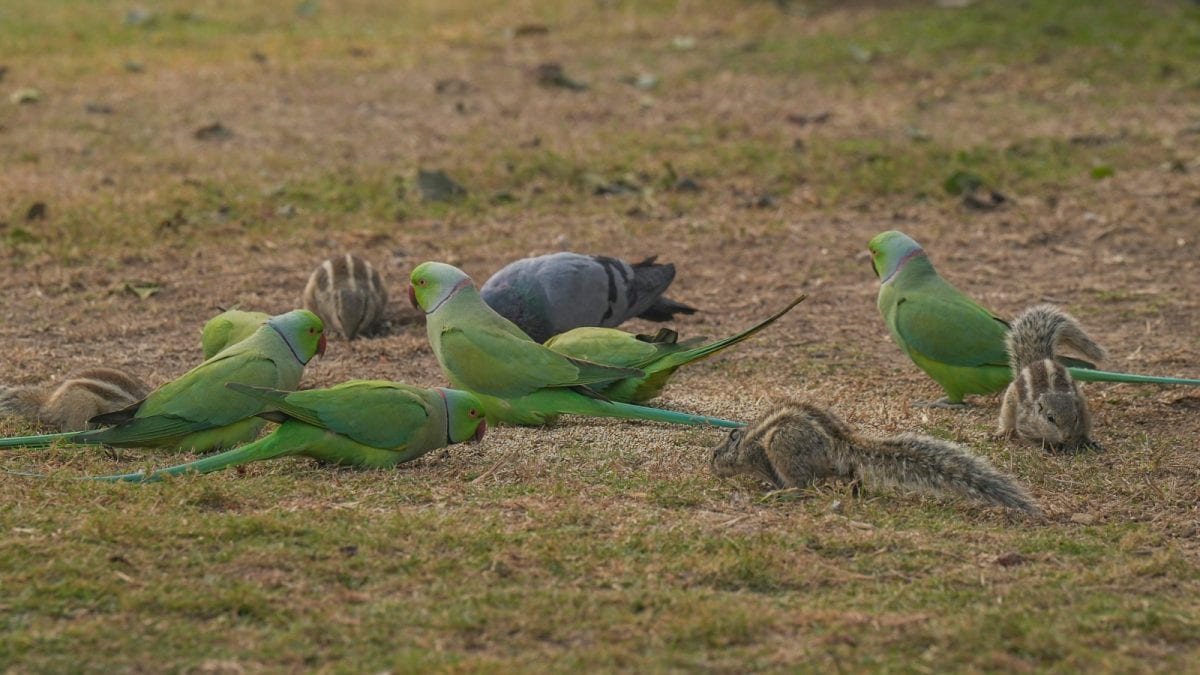ARTICLE AD BOX
PM Narendra Modi's makhana mentions as Bihar heads for polls could be strategic. With Bihar producing 90% of India's foxnuts and lakhs of farmers across a dozen districts involved in its cultivation and trade. Makhana is providing both political and economic opportunities, backed by promises of global branding, GI tag value, and startup potential.

Prime Minister Narendra Modi was felicitated with a garland of makhana by NDA leaders in Bihar in February. (Photo: File)
During his fifth visit to poll-bound Bihar on Friday, Prime Minister Narendra Modi once again mentioned his go-to snack – makhana, or foxnut – which he said he consumed 300 days a year. While addressing the rally in East Champaran district's Motihari, Modi claimed that under the NDA government, the price of makhana had increased.
But PM Modi's makhana push may be more strategic than it seems.
Lakhs of families, particularly from the OBC Mallah community – who command a vote share of around 6% in Bihar – are involved in processing foxnuts. There's also a demand from community leaders to include the caste in the list of Scheduled Castes. Additionally, the nine makhana-growing districts of eastern and northern Bihar account for around 25 percent of seats in the state Vidhan Sabha.
The nine key districts in the Mithila region that are key makhana cultivation hubs are – Darbhanga, Madhubani, Purnea, Katihar, Saharsa, Supaul, Araria, Kishanganj, and Sitamarhi.
"It was only after the NDA government came to power that the price of makhana increased, benefiting farmers. Additionally, products like litchi, Jardalu mango, Magahi paan, and ratale (yam) will be connected to markets worldwide" Modi said in Motihari on Friday
Interestingly, four agricultural produce from Bihar Modi mentioned have a GI tag status: Mithila Makhana, northern and eastern regions of Bihar; Shahi Litchi from Muzaffarpur; Jardalu mango from Bhagalpur; and Magahi Paan from the southern Magadh region.
It must also be noted that by invoking makhana, the Prime Minister appeared to be appealing to voters in at least 61 of Bihar's 243 Assembly seats, if not more.
Meanwhile, it's important to note that the Mallahs are part of the OBC category, which collectively makes up nearly 63% of Bihar’s population.
According to the recent caste census, the Mallah population alone stands at over 34 lakh.
While many might argue that giving doles to a sub-caste doesn't ensure support from the larger OBC bloc, seasoned politicians like Narendra Modi understand the ripple effect such moves can trigger across caste groups.
This awareness was evident when, just two minutes after he mentioned makhana, Modi said, "The backward class and backward regions are the priority of our government. For decades, the OBC community demanded constitutional status, and it was our government that fulfilled this demand."
The reference to the backward region must have been a clear reference to the makhana-growing districts of Bihar, many of which are on the Niti Aayog's list of 250 aspirational (backward in social indicators) districts.
MAKHANA IS ALSO BIHAR'S AGRICULTURAL TRUMP CARD
Makhana is more than just a way to connect with one community – it's also an economic and agricultural trump card for India’s most backward state.
Bihar produces 90% of India's makhana – around 10,000 tonnes annually, according to the Indian Council of Agricultural Research (ICAR).
India also supplies nearly 80% of the global makhana demand. Internationally, it has become a coveted "superfood", appealing to health-conscious consumers looking for plant-based protein alternatives.
From Rs 1,000 per kg a decade ago in global markets, makhana now fetches up to Rs 8,000 per kg. Domestically, prices have risen from Rs 250 to around Rs 1,400-1,600 per kg – with prices spiking during festivals.
In Bihar's flood-prone areas in the north and the eastern regions, where ponds and lakes are in plenty, makhana cultivation has turned into a lucrative opportunity for farmers, with thousands reportedly earning triple the income of traditional rice and fish farming. The crop flourishes in waterlogged conditions, and innovations like the home-grown "Sabour Makhana-1" variety have boosted yields twofold while raising the edible seed ratio from 40% to 60%.
MODI HAS TAPPED INTO BIHARI MAKHANA EARLIER TOO
Tapping into Bihar's makhana story has been a carefully planned move by the BJP.
Since earlier this year, it has featured in both the Union government’s agenda and Modi's speeches.
In the 2025 Union Budget on February 1, Finance Minister Nirmala Sitharaman announced the setting up of a Makhana Board in Bihar to support production, processing, and global marketing.
The board will provide training to makhana farmers, and will provide them with high-yield seeds, and market access, while especially addressing low productivity – from 1.7-1.9 tonnes/hectare vs. the potential 3-3.5 tonnes.
Not only was the move welcomed by the makhana growers, it aligned well with addressing key issues in the poll-bound Bihar, farmer's income, food processing industries, and overall economic and commercial wellbeing.
In the same month, during his first 2025 visit to Bihar to launch the 19th instalment of the PM Kisan scheme, Modi sang makhana's praises to himself for the first time, saying: "Makhana has become an important part of breakfast in the cities of the country today. Out of 365 days, I also eat Makhana for 300 days. It is a superfood."
The Bihar-focussed outreach hasn't been limited to domestic soil. In March, while addressing the Indian diaspora in Mauritius – many of whom trace their roots to Bihar – Modi switched between Hindi and Bhojpuri and said, "Bihar's makhana will soon be a part of the global snack menu."
During the trip, Modi also gifted makhana to Mauritius President Dharambeer Gokhool and First Lady Vrinda Gokhool.
THERE IS ALSO MAKHANA-NOMICS
Soon after the Prime Minister's podcast with entrepreneur Nikhil Kamath, the Bengaluru-based Zerodha co-founder said in an X post on January 19, "Maybe room here to build a really large brand, an Indian brand that sells to the world. Personally, I'm hooked on Makhana," along with Business Insider's detailed statistics of the paradigm shift in global demand for foxnuts, driving the surge even further.
Kamath also said that the Bihar superfood will create a billion-dollar industry in India.
He also emphasised the entrepreneurial surge in Bihar's makhana sector, saying startups are leveraging makhana's potential, with brands like Mr Makhana earning Rs 50-60 lakh monthly, Farmley raising $6.7 million, and Shakti Sudha targeting growth from Rs 50 crore to Rs 1,000 crore.
Not just this, entrepreneurs like Shravan Kumar Roy from Darbhanga have turned makhana into success stories. His brand "MBA Makhanawala" turned makhana into healthy snacks like makhana dosa, makhana cookies, and makhana kheer under his brand. These unique products were also presented at global events like the G20 Summit.
This all aligns seamlessly with Modi's startup push for India, with Bihar potentially playing a key role in driving the vision forward.
While it offers livelihoods to lakhs of farmers and global economic potential, the superfood may also work like magic for Modi's poll agenda in Bihar, giving the campaign a healthy boost.
- Ends
Published By:
Anand Singh
Published On:
Jul 18, 2025
Tune In



.png)
.png)
.png)
















 3 hours ago
5
3 hours ago
5









 English (US) ·
English (US) ·